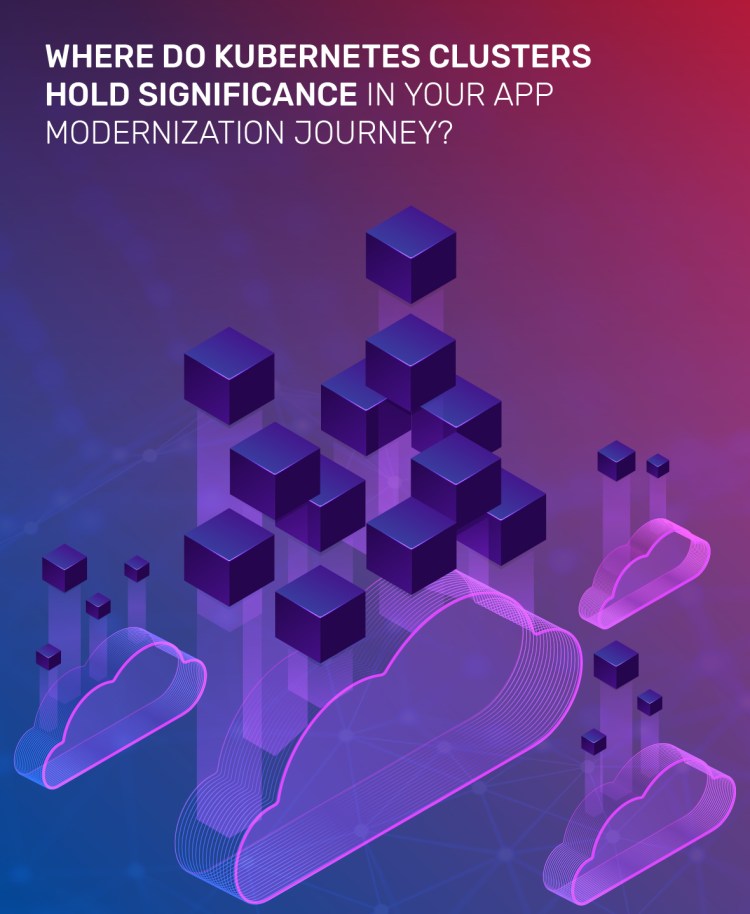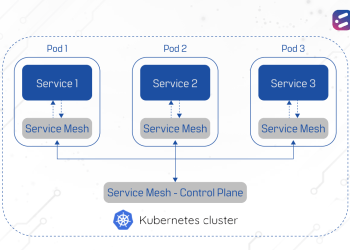What’s the most important element to modernizing an application? Unless there’s a major business driver necessity, chances are that the answer is to bring the structure of the app up-to-date.
A major part of application modernization is re-architecture of the application. Legacy applications are most often monolithic in their structure; a key part of modern app development involves containerizing these apps and moving them to the cloud. This improves efficiency, maintainability, and ease of migration when needed.
Kubernetes (K8s) offers the benefits of auto-scaling and security features, and is a popular choice for container-based app modernization.
No matter what industry they’re operating in, every organization is adopting digitalization. Businesses used to be limited to quarterly distribution for vital apps. The Kubernetes declarative API-driven infrastructure allows teams to work freely. It also helps operators focus on their business targets.
These prime changes in the working culture have been proven to contribute to increased autonomy and productivity, while reducing time and labor from the development teams.
Kubernetes allows teams to distribute new software products more frequently, and creates a fast virtuous cycle for tech practitioners toward the success of several organizations.
Easy deployment of services/microservices
When developing a workload while modernizing an application, we first create the Kubernetes cluster and deploy the microservice. Inside the cluster, it automatically creates the containers/pods required. Without the Kubernetes clusters, we would be unable to deploy any services at all.
On the other hand, with K8s clusters, service deployment becomes very easy. The development process begins with creating a container image. We then push this into the Container Registry, which stores all container images. To deploy a service, we create a deployment file to configure from where to retrieve the image; it fetches and deploys the container image. And that’s it!
Drawbacks and Challenges
While it has definite positives, Kubernetes adoption also brings with it certain challenges. There are certain security and compliance concerns associated with application container technology. 90% of organizations (according to the StackRox State of Container and Kubernetes Security report, Fall 2020) have witnessed security breaches in their Kubernetes environments, primarily owing to human error. Another major issue impacting deployment, cited by 70% of respondents, was lack of experience and expertise working with Kubernetes.
Many business owners and managers face issues with Kubernetes, because it is complex to set up. Though there is an extensive range of tools to assist with K8s deployment, setup, installation and configuration of infrastructure, network and other Kubernetes components are not straightforward. Even after launch, it takes experience with Kubernetes to manage Kubernetes clusters at scale. It is a complex platform, and requires developers who can understand its contours to use it effectively.
Future of Kubernetes technology
Kubernetes usage among large-scale businesses with 1,000 or more employees has ballooned over 20 percentage points in two years, from just 27% in 2018 to 48% in 2020 (according to VMware’s ‘State of Kubernetes 2020’ report). The same report also states that accelerated cloud adoption to support remote working, and expected growth of the application container market, are also driving Kubernetes adoption.
Increased adoption has been driven by the benefits of cost-effectiveness, speed and ease of maintenance, which outweigh the challenges related to the complexity of Kubernetes deployment. Thanks to enhanced scalability, storage orchestration and reliability, business owners and managers are increasingly interested in using Kubernetes technology… with the help of an experienced developer, to mitigate some of the challenges.
Kubernetes containerized development is the best way to create efficient, secure and scalable tech products. However, without an experienced developer helming the project, businesses can rapidly find themselves in difficulties when it comes to Kubernetes deployment. So before you get started on your next development project, do consult the Kubernetes development experts at CloudNow.
At CloudNow, our experts are well-versed in the usage of Kubernetes clusters in development. Do contact us to discuss how we can get started with your development journey.













